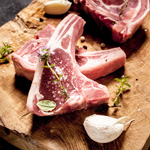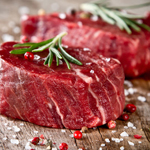 As ongoing soil erosion continues to deplete the nutritional value of many of our healthiest fruits and vegetables, more and more people are starting to seek out less conventional foods to meet their daily vitamin and mineral requirements. Indeed, the sales of little-known but nutrient-rich foods such as blackstrap molasses, Moringa oleifera, and maca root continue to rise. The same is also true of bee products, which are renowned for their unusually impressive profiles. The bee products listed below are especially healthy and put most commercial health supplements to shame.
As ongoing soil erosion continues to deplete the nutritional value of many of our healthiest fruits and vegetables, more and more people are starting to seek out less conventional foods to meet their daily vitamin and mineral requirements. Indeed, the sales of little-known but nutrient-rich foods such as blackstrap molasses, Moringa oleifera, and maca root continue to rise. The same is also true of bee products, which are renowned for their unusually impressive profiles. The bee products listed below are especially healthy and put most commercial health supplements to shame.
Bee Pollen
Bee pollen (also called bee bread) is pollen that has been packed into granules by worker bees to help feed the hive’s younger bees. Unsurprisingly, then, bee pollen contains all the essential components of life; it is a “complete food,” much like eggs and raw milk.
The average pollen ball, for instance, is comprised of approximately 40 percent protein, which includes at least 18 amino acids. Bee pollen also contains vitamins B, C, E, and D, important enzymes that aid digestion, carotenes, essential fatty acids, polysaccharides, and countless trace minerals like iron, zinc, magnesium, and copper. Bee pollen is also rich in cancer-fighting antioxidants, including the super-antioxidant rutin, which, according to researchers at the Institute of Apiculture in Taranov, Russia, has the ability to strengthen our capillaries.
Propolis
Propolis is a sticky, brown substance made from bee saliva and tree bark resin which is used by bees to seal their hives from invaders. Though it might not sound too appetizing, propolis is a fantastic superfood that has been cherished for centuries in Europe for its medicinal properties.
Like bee pollen, propolis is made up of a dense concentration of nutrients. It contains high amounts of vitamins A, B, C, and E, as well as many amino acids, antioxidants, and over 60 trace minerals, effectively covering the full spectrum from A (antimony) to Z (zinc). All of these nutrients work in tandem to aid our bodies’ natural processes.
Propolis has enjoyed a considerable amount of research. Indeed, recent studies have found that propolis contains anticancer properties, anti-inflammatory properties, antiseptic properties, and immune-boosting properties. Other studies have also found that propolis contains anti-aging benefits and that it can even treat dental plaque.
Royal Jelly
Royal jelly is a thick, milky-white substance that is secreted from the glands of worker bees to feed their larvae and queen. Another amazing “complete” food, royal jelly is packed with vitamins A, C, B, and E, antioxidants and protein (including all eight essential amino acids), and a trace mineral profile comparable to those of bee pollen and propolis.
Like propolis, royal jelly has been subjected to countless studies. Researchers have discovered that it can suppress blood supplies to tumors, improve insulin resistance and blood pressure, and remove unfriendly bacterial cultures from our bodies. Moreover, royal jelly also stimulates estrogen production, which helps stabilize menstrual cycles in women and improve sperm morphology in men.
Purchasing Advice
All three products listed above share similar nutritional profiles, so it doesn’t matter which one you pick. If none of them appeal to you, raw honey is, of course, always an option.
Regardless of which product you choose, however, make sure that it is organic and unprocessed. Aside from being healthier, products from organic sellers are much likelier to come from bees that are treated well.






